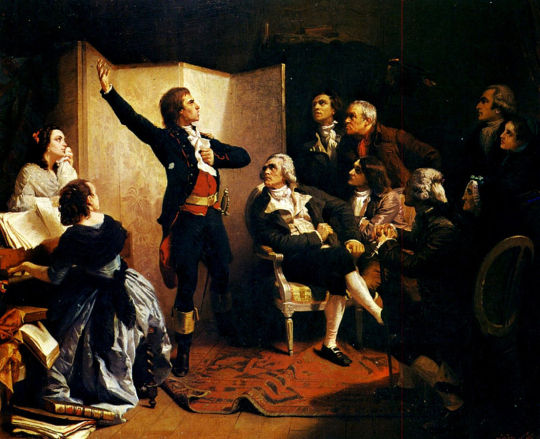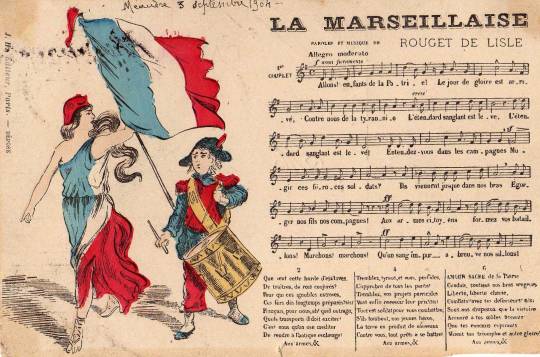A brazilian perspective to International Relations/Affairs, Politics and to the World. Currently in International Relations bachelor. Trying to improve my abilities in the field is the main objective of this blog. This is a side blog, original: @kronens.
Don't wanna be here? Send us removal request.
Video
youtube
I can’t even describe how important this documentary is to anyone studying IR... Seriously, everyone should watch it.
#Shouting int the dark#Bahrein#Arab spring#Persian Gulf#Documentary#international relations#international affairs#international politics
1 note
·
View note
Text
Baltic’s case
Today was the (kind of) exam I had about the case I posted earlier... and geez... The professor was furious. Firstly, I have to digest that, and then I’ll be posting something about the case!
#The Baltics and Russia#Scandinavian countries too#As well as EUA and UE#International Affairs#international relations#brazilian international relations#brazilian perspective
0 notes
Photo


April 25th 1792: La Marseillaise composed
On this day in 1792, La Marseillaise - the French national anthem - was composed by Claude-Joseph Rouget de Lisle. Rouget de Lisle was a captain of the engineers in the French army, and an amateur musician. He was stationed at Strasbourg during the French Revolution, and was there when Austria and Prussia invaded France to quell the revolution. Upon France’s declaration of war on the two countries in April 1792, the mayor of Strasbourg asked Rouget de Lisle, a guest at his house, to write a marching song to rally French troops. He obliged, and on the evening of April 25th 1792, wrote the ‘Chant de guerre pour l'armée du Rhin’ - ‘War song for the Army of the Rhine’. The song was published by revolutionary François Mireur in Marseille, and was sung with fervour by the Marseille volunteer soldiers as they entered Paris in July 1792, earning the song its new title of ‘La Marseillaise’. In July 1795, ‘La Marseillaise’ was declared a national song, but it was banned by Napoleon under the new empire. The song was eventually rearranged and reinstated, and adopted as the national anthem under the Third Republic in 1879; in the twentieth century, the anthem was written into the constitution. The original ‘La Marseillaise’ had six verses, but only the first and sixth verse are customarily sung today. The lyrics are fairly violent, but it is a rousing song about the strength of French citizens, and remains an iconic national anthem.
Allons enfants de la Patrie, (Arise, children of the Fatherland) Le jour de gloire est arrive! (The day of glory has arrived!) Contre nous de la tyrannie, (Against us tyranny’s) L'etendard sanglant est leve (repeat) (Bloody banner is raised)
709 notes
·
View notes
Link
In 2 two days I’ll be doing (kind of) an exam about what this news says - the Baltic’s tension, that have been scalating since Crimean’s annexation by Russia. If I get any new view about it, let’s see if I make a post about it.
#pentagon#russia#nato#european reassurance intiative#europe#IR#Brazil Perspective#International relations#International politics#News
1 note
·
View note
Text
Congress has approved Roussef’s impeachment process to continue
30 notes
·
View notes
Link
”Brasil ha sido ejemplo de democracia en el continente y todos necesitamos que lo siga siendo. Por ello es que la comunidad internacional hace un llamado en esa dirección.”
0 notes
Link
Tha is language and its soft power!
0 notes
Link
Celo Amorim, ex-foreign minister of Brazil, stands about Roussef’s impeachment.
0 notes
Link
Tomorrow (17/04/16) Brazil’s presidential impeachment will be voted in Câmara dos Deputados (Lower House).
The process was very well summarized by the Daily Mall.
0 notes
Photo

Well! That’s it!
3 notes
·
View notes
Quote
A maioria dos teóricos políticos parlamentaristas continuou a falar no "povo", e apenas quando pressionados é que reconheciam que não incluíam os pobres. Assim, Marchamont Nedham, propagandista do governo republicano da década de 1650, declarou que "quando mencionamos o povo não nos referimos ao corpo confuso e promíscuo do povo"; "por povo entendemos aqueles que serão devidamente escolhidos para representar sucessivamente o povo em suas assembléias supremas
HILL, C. Os Pobres e o Povo da Inglaterra do Século XVII. In: KRANTZ, F. (org.) A Outra História: Ideologia e Protesto Popular nos Séculos XVII a XIX.
#Christopher Hill#Modern History#England and its people in XVII century#Sorry it's not in english#Portuguese quote#Who was the people of England
1 note
·
View note
Photo


hello, everyone! karla and luisa speaking here. :) we are brazilian undergrad students of International Relations and we’re making a studyblr to keep us motivated in everything study-related! as our dash is a little dead, we’re looking for blogs to follow, so, if you’re interested, please like and/or reblog this post and we’ll definitely check you guys out. you are bound to see us freaking out about international politics, here, but we intend to post about our experience at the uni and at living far away from our parents. (also, lots of things about language, because we are huge nerds.) please like us!!
oi, todo mundo! aqui quem fala é a karla e a luisa. :) nós somos estudantes brasileiras de graduação em Relações Internacionais e estamos fazendo esse blog para nos manter motivadas em tudo relacionado a estudos! como nossa dash está um pouco morta, estamos procurando blogs para seguir, então, se você se interessar, por favor dê like/reblog esse post que a gente vai com certeza dar uma conferida em todo mundo que o fizer. vocês vão definitivamente ver a gente surtando com política internacional, aqui, mas também pretendemos postar sobre nossa experiência como universitárias e vivendo longe dos pais. (ah, e também muita coisa sobre línguas, porque somos grande nerds.) por favor, gostem de nós!!
8 notes
·
View notes
Photo

The winning Queen Mary’s Auxiliary Army Corps tug-o-war at the NZ Infantry and General Base Depot, Etaples, France, 3 August 1918.
(National Library of New Zealand)
9 notes
·
View notes
Text
e-IR
Would you be interested?
“E-International Relations (http://www.e-ir.info/) is seeking to appoint a team of 3-5 editors to work as part of an IR theory team to drive coverage of innovative areas in the discipline.
E-IR is not your typical ‘work experience’. First, we have no office – everything is decentralized and we use a range of virtual tools to organize and coordinate our activities (including Slack, Google Docs, Skype and the odd email). Second, editors are empowered to set their own agendas and develop their own projects. This ranges from pursuing personal interests to commission and edit content for the website, to having an idea for a new section and then working with the team to plan, test and build it. The result is that the more E-IR volunteers give of themselves, the more they take away from the experience. It’s a place where people with a bit of initiative and drive really thrive.
E-IR has no paid staff members and is maintained by a registered non-profit organisation based in Bristol, England. Our volunteer editors work on the website and give up some of their spare time simply because they want to have a hand in maintaining the best online resource for students and scholars of international politics. Many of our former editors have built on their experience of working with us to go on to senior positions in the publishing industry, politics, and academia.
This particular role is aimed at PhD students / postdocs who are pursuing research in any area of International Relations Theory (or an associated area such as Political Theory). Masters students on a PhD pathway are also eligible to apply. The role involves using your expertise in the field to identify prospective authors to write for the website, especially up and coming names as opposed to just leading experts. Ideally, this would be targeted into sets of articles on related themes – or into an Edited Collection. As those pieces arrive, you will work with the author to prepare them for publication. The role is an exciting opportunity to network with scholars around the world, and can also serve as a pathway into senior editorial positions on the E-IR team. You would also be encouraged to write for the website.
You do not need to physically attend a place of work to volunteer with us, you just need your own computer with the usual software (especially Microsoft Office) and a reliable internet connection. You also need to be the type of person who checks their email regularly and probably spends too much time on their computer / mobile device!
If you feel that you would like to take on this role you must have at least 5 hours a week to spare during normal working weeks for a duration of at least 6 months. You must be a self-starter, willing and able to work on your own initiative with little supervision. Finally, you must have strong English language skills as you will need to assist in editing the articles that you commission.
► To apply, send us an email titled ‘IR Theory Editor’ to [email protected]
Within that email – in less than 500 words:
1. Tell us what we need to know about your academic past/future/publications etc. 2. Define one clear area of IR Theory we should be investing more of our time in and how you would go about addressing this. Ideally, this answer would showcase your expertise/interests. 3. Attach an academic writing sample (an essay or conference paper will do) and link your academic website if you have one.
Applications for this role are open until 1 May, after which we will respond to shortlisted candidates Unfortunately, we cannot reply to candidates that we do not shortlist.”
0 notes
Photo

Countries with public officials implicated in the Panama Papers leak.
12K notes
·
View notes
